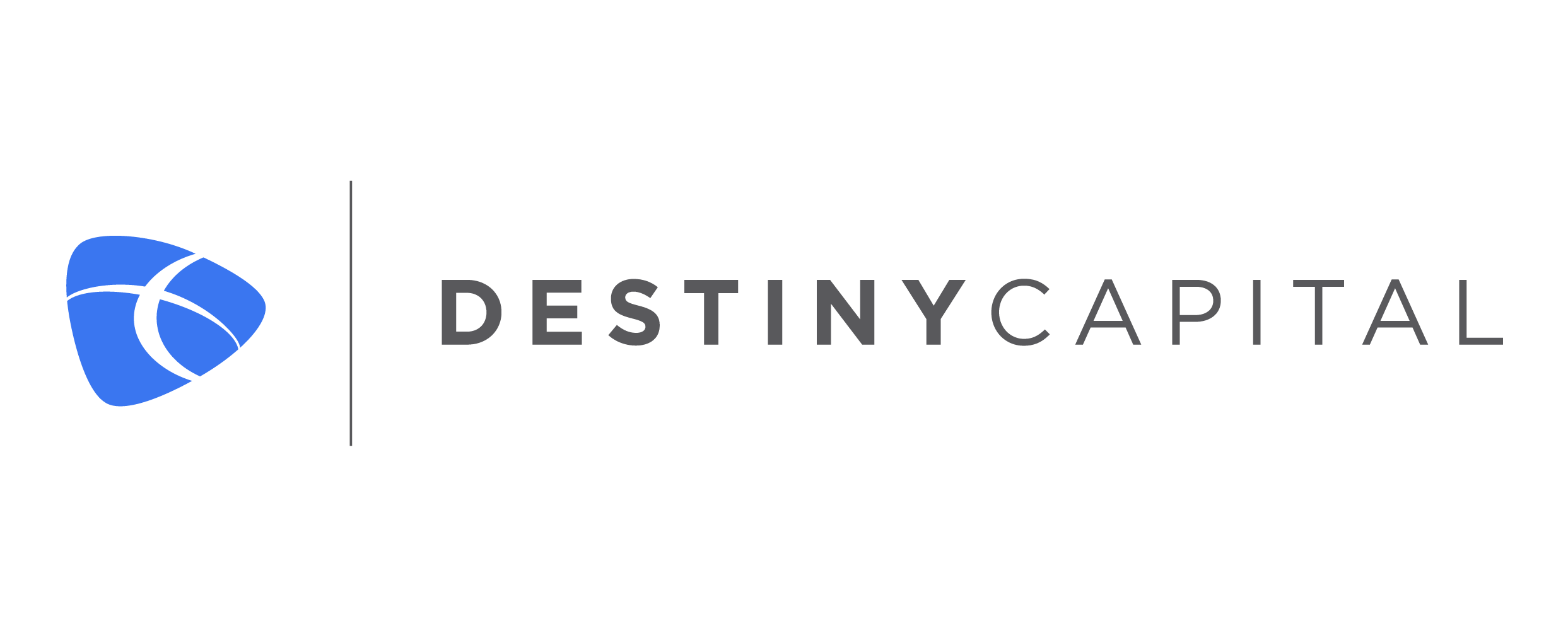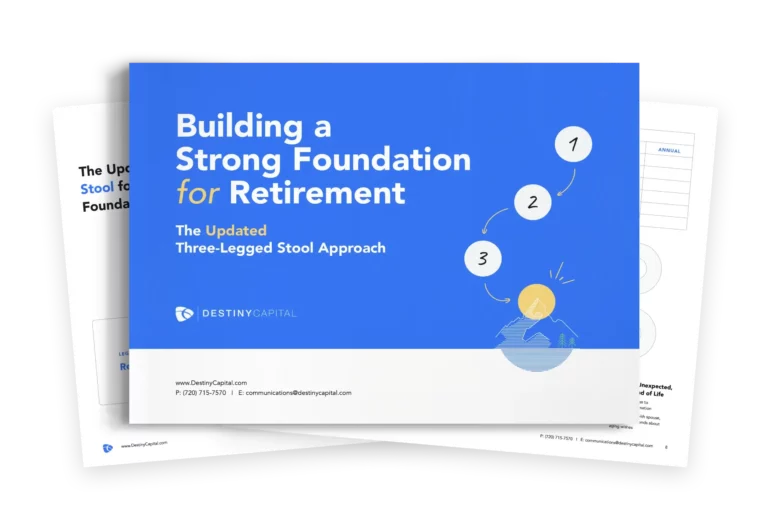Tax Strategies for High-Income Business Owners in Colorado
As a successful business owner in Colorado, you’ve worked tirelessly to build your enterprise and secure your financial future. However, with great success comes great responsibility – especially when it comes to managing your tax burden. For high-income business owners, that often means navigating:
Hefty Tax Obligations
While Colorado boasts a flat income tax rate of 4.4%, federal rates for top earners can reach 37%, with additional self-employment and payroll taxes. Without a plan, your total burden can exceed 40%.
Complicated Regulations
Tax codes grow more intricate with rising income, particularly for business owners managing multiple income streams, business structures, and capital gains.
Missed Opportunities
A lack of proactive planning around taxes often leaves money on the table, such as failing to capitalize on your earned deductions.
Yes, balancing the rewards of success with the complexities of taxes can feel overwhelming. However, with the right strategies, you can overcome these challenges, be more proactive in your wealth management approach, and preserve more of your hard-earned revenue.
Understanding and leveraging Colorado’s tax landscape and advanced planning opportunities can help you keep more of your earnings while planning for the future.
Some strategies to consider include:
Maximizing Retirement Contributions
As a high-income business owner, maximizing your retirement contributions can be a key first step toward lowering overall liability. Not only does this help you plan for life after your career, but it can also provide significant tax advantages now.
Some options to consider include:
401(k) Plans
For 2025, the individual contribution limit is $23,500, with an additional catch-up contribution of $7,500 for those aged 50 and above. Employers can also contribute up to 25% of the employee’s compensation, with total contributions capped at $70,000.
Solo 401(k) Plans
Ideal for self-employed individuals or business owners without employees, these plans allow for higher contribution limits, combining employee and employer contributions (up to $69,000 in 2024 and $70,000 in 2025) to maximize tax-deferred savings.
SEP IRAs
A Simplified Employee Pension Plan, or SEP IRA, allows business owners to contribute to traditional IRAs for employees. In 2024, individuals can contribute up to 25% of compensation or $69,000, whichever is less. In 2025, this will be bumped to $70,000, similar to the 401(k) limits.
Contributing to these accounts can help substantially reduce your taxable income for the year. For example, if you earned $500,000 in 2025 as a high-income business owner and contributed the maximum $77,500 to a Solo 401(k) (including the $7,500 catch-up contribution if over 50), you could reduce your taxable income to $422,500. At a 40% combined tax rate, this strategy could save you approximately $31,000 in taxes while significantly boosting your retirement savings.
Strategic Charitable Giving and Deductions
Philanthropy can serve as a powerful tool for tax planning. By aligning charitable contributions with tax strategies, high-income business owners can achieve both altruistic and financial objectives. Some potential mechanisms to consider when trying to do good and preserve your income include:
Donor-Advised Funds (DAFs)
Donor-advised funds have emerged as a powerful tool for charitable giving, especially for high-income business owners looking to optimize their tax strategies. These funds allow donors to make a charitable contribution, receive an immediate tax deduction, and recommend grants from the fund over time. This strategy enables the bunching of deductions, which can be particularly beneficial under the current tax laws.
Qualified Charitable Distributions (QCDs)
Qualified Charitable Distributions (QCDs) offer a powerful tax-saving strategy for philanthropically-inclined individuals aged 70½ or older. A QCD allows you to transfer funds directly from your Individual Retirement Account (IRA) to an eligible charitable organization without the distribution being included in your taxable income. This mechanism not only helps satisfy Required Minimum Distributions (RMDs) but also offers significant tax advantages, especially for individuals who do not itemize deductions. By reducing your adjusted gross income, a QCD may also help minimize the tax impact on Social Security benefits and reduce Medicare premiums.
Charitable Remainder Trusts (CRTs)
Charitable Remainder Trusts (CRTs) represent a sophisticated philanthropic tool that offers significant benefits for high-income business owners seeking to optimize their tax strategies while supporting meaningful philanthropic causes. By placing appreciated assets into a CRT, donors can generate a potential income stream for themselves or designated beneficiaries, receive an immediate partial tax deduction, and ultimately provide substantial support to charitable organizations they care about deeply.
Effective Capital Gains Management
As a high-income business owner in Colorado, you likely have accumulated significant capital assets. Effectively managing these assets is essential for optimizing your tax position and preserving wealth. The strategic handling of capital gains can influence your overall tax liability, potentially resulting in meaningful savings. By considering various capital gains management strategies, you can work toward minimizing your current tax burden while positioning yourself for future financial stability.
Consider these strategies:
Tax-Loss Harvesting
This technique involves strategically selling underperforming investments at a loss to offset capital gains. For instance, if you’ve realized substantial gains from selling a successful investment, you might identify and sell other assets that have declined in value, generating losses to counterbalance your gains. This approach can help reduce your overall tax liability for the year. However, it’s crucial to be aware of the wash-sale rule, which prohibits claiming a loss on a security if you purchase a “substantially identical” security within 30 days before or after the sale.
Opportunity Zone Investments
Colorado has designated 126 Opportunity Zones, offering potential tax benefits for investors. By investing capital gains into Qualified Opportunity Funds (QOFs) that support projects in these zones, you can defer tax on the original capital gain until December 31, 2026, or when you sell your Opportunity Zone investment, whichever comes first. Additionally, if you hold the investment for at least 10 years, you may pay no capital gains tax on any appreciation in your Opportunity Zone investment. This strategy can be an option for diversifying your investments while supporting local community development.
1031 Exchanges
For real estate investors, 1031 exchanges (also known as like-kind exchanges) provide a method to defer capital gains taxes by reinvesting the proceeds from selling one investment property into another “like-kind” property. It’s important to note that the replacement property must be identified within 45 days of selling the relinquished property, and the purchase must be completed within 180 days. While 1031 exchanges can offer significant tax benefits, they come with strict rules and timelines, making it essential to work with qualified professionals to ensure compliance and maximize benefits.
The Power of Professional Guidance: Partnering with a Qualified Financial Advisor
One of the most effective strategies for high-income business owners in Colorado is to partner with a qualified financial advisor. The often complex tax management landscape requires specialized expertise and a deep understanding of current regulations, which can be challenging for busy entrepreneurs to tackle alone.
A professional financial advisor has a comprehensive knowledge of strategies, economic regulations, and industry-specific nuances that are critical for developing an informed approach to tax management. They can objectively analyze your specific financial situation and offer insights into potential strategies that align with your overall financial goals and future life vision. By working with an advisor, you can help effectively manage your taxes while prioritizing wealth preservation.
Schedule a Free Consultation With Destiny Capital Today
Navigating the complexities of tax strategies as a high-income business owner can be challenging. Destiny Capital can help you create a personalized strategy that aligns with your unique goals and circumstances. Contact us today to schedule your free consultation.
Share this
Stay Ahead with Smart Investments
Learn how to invest wisely and minimize risks to protect your retirement savings.
Achieve Your Retirement Goals
Get personalized advice to meet your retirement goals. Book your call with Destiny Capital now.




